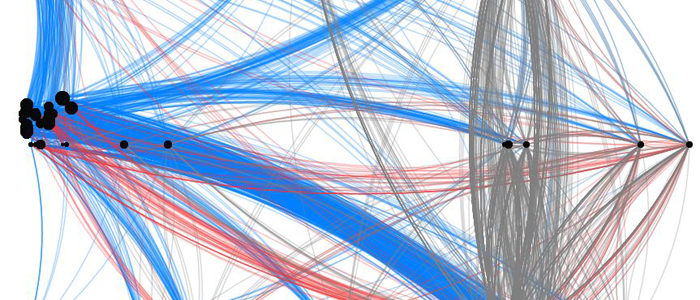What we Do

Ecological communities respond to global changes in different ways. Some of them unexpectedly break down, which coincides with losses of species, habitats and ecosystem services.
Over the last century, humans have induced larger and more rapid changes in ecosystems than in any other period of time in human history. Understanding the environmental changes of the coming decades requires an improved scientific understanding of the role of ecological interactions in stabilizing and destabilizing communities.

We develop and test indicators of degradation in ecosystems, especially indicators of desertification based on spatial vegetation patterns.
Shifts can be responsible for large, long-lasting changes in ecosystems and can result in dramatic ecological and economic consequences. In the current context of global change, it is becoming increasingly important for us to be able to anticipate shifts in ecological communities. For terrestrial ecosystems, it has been hypothesized that vegetation patchiness could be used as a signature of imminent transitions in ecosystems. We study how vegetation patchiness changes in arid ecosystems under changing external pressures (e.g. grazing), using both field data and modelling approaches with the aim to develop reliable indicators of degradation, in particular in the case of drylands.

We investigate whether and how global changes (e.g. temperature, habitat changes) affect biodiversity.
Our approach to this central issue is to test explicit predictions on processes at play in spatial and temporal community dynamics. For instance, we try to disentangle several aspects of diversity (e.g., functional, phylogenetic or taxonomic diversity) to better describe and explain community assembly following disturbances. We particularly focus on climate change impacts on species and community dynamics to test the causes and consequences of changes in community composition following temperature fluctuation. Part of this research is anchored in theoretical ecology but we also aim at developing relevant indicators and at assessing the effectiveness of conservation policy using empirical data. This research is largely based on large datasets analysis, typically derived from citizen science and data collection. We also construct theoretical models to better understand observed and predicted dynamics.

We study the functioning and resilience of ecological networks, including trophic and non-trophic as well as positive and negative interactions.
We especially focus on facilitative interactions which have been neglected in the ecological literature relative to other interaction types. Despite their potential importance for community resilience, little is known about the role of positive interactions embedded in complex networks in stabilizing or destabilizing communities. We investigate, both empirically and theoretically, how positive interactions affect the functioning and stability of ecological communities, as well as the response of these communities to changing external conditions.